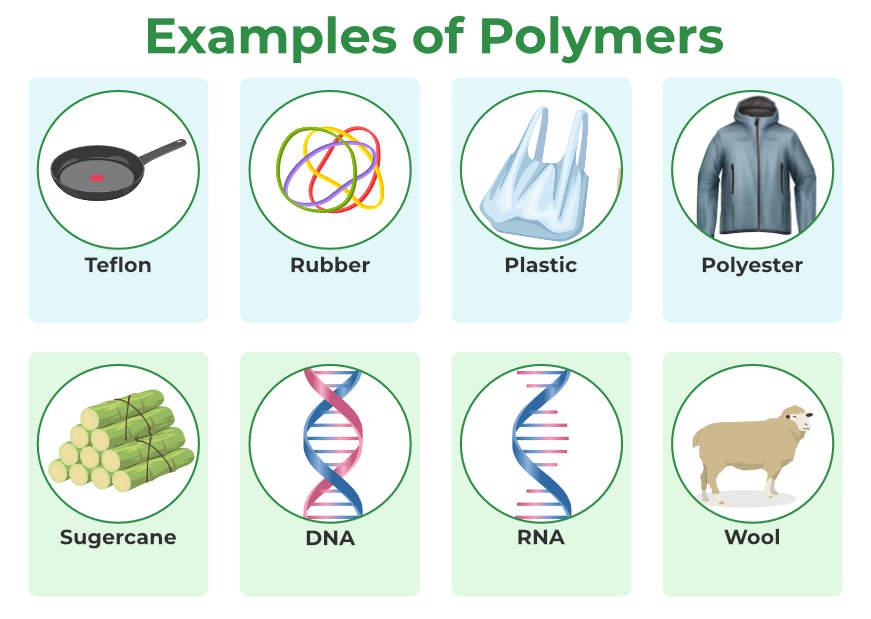Polymers in Construction: Stronger, Lighter in weight, and Extra Durable
Polymers in Construction: Stronger, Lighter in weight, and Extra Durable
Blog Article
Checking Out the Varied Applications and Advantages of Polymers in Different Industries
Polymers, with their varied series of buildings and functionalities, have ended up being crucial in various industries, each reaping unique take advantage of their application. Polymers. From improving security and performance in the automobile market to transforming clinical devices in the medical care sector, polymers play a critical role. In addition, their green nature is altering the landscape of sustainability methods. As we look into the depths of polymers in electronics, we uncover advanced advancements, while their structural honesty transforms the world of building and construction and infrastructure. The pervasive influence of polymers across industries is a testimony to their flexibility and flexibility, forming the future of countless sectors.
Automotive Market Applications
Polymers play a crucial function in enhancing the performance and durability of various components within the auto industry. These flexible products are thoroughly made use of in the production of different components, ranging from indoor parts to under-the-hood applications. One noticeable usage of polymers in the vehicle market is in the production of lightweight elements. By changing standard steel get rid of polymer-based options, lorries can achieve enhanced gas performance without jeopardizing on toughness or safety.
:max_bytes(150000):strip_icc()/three-dimensional-model-of-polyvinyl-chloride-165874889-5c425ea7c9e77c000188be6d.jpg)
Medical Care Industry Benefits
In different health care applications, the benefits of utilizing polymers are widely identified for their varied series of useful buildings. Polymers play a vital role in the healthcare industry due to their flexibility, biocompatibility, and cost-effectiveness. One of the main advantages of polymers in healthcare is their ability to be tailored to specific requirements, such as flexibility, toughness, and biodegradability, making them suitable for a vast array of clinical applications.
Polymer-based products are thoroughly made use of in clinical tools, such as catheters, implants, prosthetics, and medicine distribution systems, as a result of their biocompatibility and ability to imitate natural cells. These products can lower the risk of sensitive reactions or denials, boosting patient safety and security and end results. In addition, polymers are light-weight, making them suitable for wearable clinical tools and making certain person convenience.
Additionally, polymers enable the development of cutting-edge therapy approaches, such as hydrogels for cells engineering and nanocomposites for targeted drug delivery. Their convenience of processing and sanitation makes them vital for preserving high criteria of health in medical care settings. Overall, the diverse benefits of polymers contribute considerably to advancements in medical modern technology and person care.
Environmental Benefits of Polymers

Additionally, polymers can add to power savings as a result of their light-weight nature. In sectors such as transport, light-weight polymer products can help in reducing gas usage and greenhouse gas emissions. In addition, polymers can allow the growth of energy-efficient items such as insulation products that improve power conservation Continued in structures.
Additionally, polymers check it out play a vital role in minimizing water air pollution. The usage of polymer-based purification systems can efficiently get rid of pollutants and pollutants from wastewater, protecting water sources and environments. Overall, the environmental benefits of polymers make them useful assets in advertising sustainability and green methods across various industries.
Polymers in Electronics and Innovation
Considering the enhancing demand for ingenious and sustainable options in modern-day industries, the combination of innovative polymer technologies in the realm of electronic devices and modern technology has actually arised as a crucial strategy for driving efficiency and performance. Polymers have changed the electronic devices sector by making it possible for the manufacturing of lighter, much more flexible, and resilient electronic tools. From smart devices to clinical tools, polymers play a crucial duty in improving product design and capability.
One considerable advantage of polymers in electronics is their protecting residential properties, which aid safeguard fragile digital components from ecological factors and electric disturbance. Furthermore, polymers are essential in the advancement of flexible screens, wearable technology, and published electronics, using limitless possibilities for developing clever and interconnected tools.
Additionally, making use of polymers in electronic packaging has resulted in improvements in miniaturization and thermal monitoring, boosting the total performance and dependability of digital systems. As modern technology remains to advance, the convenience and flexibility of polymers will most certainly drive better advancement in the electronics market, shaping the future of technology.
Function of Polymers in Building and Infrastructure
Polymers supply various benefits in the construction market due to their adaptability, resilience, and cost-effectiveness. One essential role of polymers in building is their usage in coatings and sealers, giving protection versus environmental variables such as dampness, UV radiation, and rust.
Moreover, polymers play a vital duty in lasting building methods by enabling the development of energy-efficient frameworks. Insulating materials made from polymers assist control indoor temperatures, lowering the demand for home heating and cooling down systems and inevitably decreasing energy usage. Moreover, the use of polymer-based compounds in infrastructure jobs such as bridges and roadways improves their More Bonuses longevity and minimizes maintenance expenses. In general, the unification of polymers in construction and framework displays their considerable effect on modern engineering practices.
Conclusion
To conclude, polymers play a critical duty in different sectors such as vehicle, health care, ecological, electronics, and building and construction. Their flexible properties make them useful in creating ingenious services and products. From enhancing gas performance in vehicles to enhancing medical devices, polymers provide various benefits. In addition, their impact on lowering waste and promoting sustainability highlights their value in modern applications. The widespread use polymers demonstrates their substantial payment to advancing modern technology and improving quality of life.
Report this page